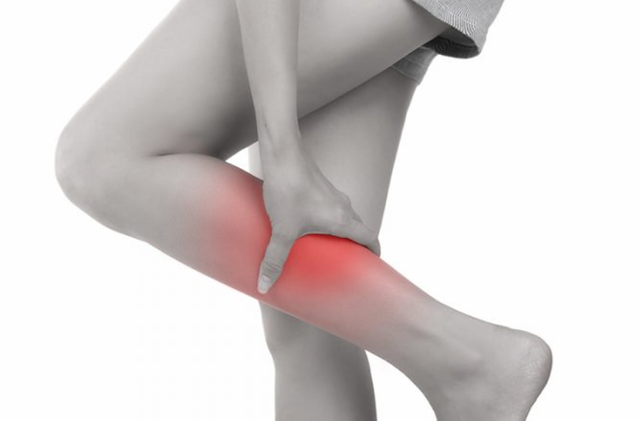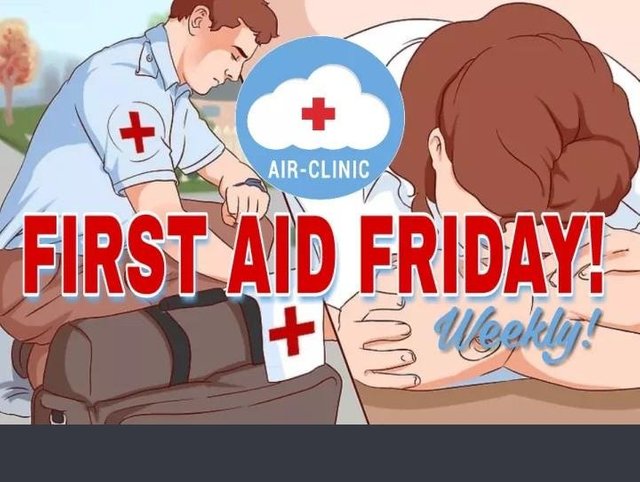First Aid for Post Polio Syndrome

Hello Air-Clinicians and Friends,
I'm sorry for skipping last week's First Aid Friday due to an unforseen event. For this week, let's have a look at another neurological emergency today: Post-polio Syndrome or PPS.

What is PPS?
According to older studies, 25-50% of the people who survived a poliomyelitis infection can develop post-polio syndrome after some years. Newer reports refer to 85% and more. Both numbers indicate that the thought, a polio survivor would remain in a stable condition for the rest of his life, is no longer valid.
Polio mainly is a disease that comes up in the child age. That means, an onset of PPS can happen already at age 18-20 but also above. Sometimes it takes decades.
SYMPTOMS INCLUDE:
- fatigue
- muscular pain
- muscular atrophy
- muscle cramps or twitches
- pain in the joints
- joint deformities, even scoliosis or kyphosis of the spine
- weakness in formerly affected and unaffected limbs
- difficulty breathing, swallowing and speaking (or any combination of those)
- decreased tolerance of cold temperatures
It can start with a slight weakness of the arms or legs also.
PPS may start too late to remember which parts of the body had been affected at the polio infection. Also former polio patients have to deal with subtle and maybe increasing weakness of their limbs.
PREVENTION AND TREATMENT
Increased activity between the polio infection and the onset of PPS can lead to an earlier onset of symptoms. Training should focus on conservation of muscular function rather than increase of muscular function.
There is no causal treatment; instead, treatment focuses on making life easier for the patients:
- people must learn about their physical limits and how to accept them, avoiding physically stressing tasks like lifting objects and such
- orthotics (especially for the lower limbs) may help to maintain or regain mobility
- taking regular breaks is a must
- physical therapy as well as psychotherapy can help to deal with the effects of the disease
Obese patients should try to lose weight to put less stress on the joints.
Mostly, the symptome decrease after some years.
Some things to be taken care of by the hospital staff
Differential diagnoses include: age-related symptoms, rheuma/arthrosis, cardiovascular diseases, radiculopathies, neuropathies, other neurological diseases, disturbance of the thyroid function, depression. Also, those may set in additionally to PPS.
Patients must undergo an extensive neurological examination. In the Western world, this includes electromyography, electroneurography, imaging (CT/MRI), nerve conduction studies, examination of the spinal liquor, sometimes x-ray.
PPS patients with respiratory difficulties need breathing exercise and regular checks of their lung condition as well as their lung secretion. Sleep apnea like symptoms may develop.
Where medication needs to be applied, a decreased effect or a limited tolerance should be taken care of. This especially affects:
- narcotics
- muscle relaxants
- psychotropic drugs
- beta blockers
- NSAID
- anti-allergic drugs
- statins
- fibrates
- some antibiotics
- Novalgin
Also, people with PPS need a longer recovery time after surgeries. This includes the longer need for assisted breathing directly after the operation.
Thanks for reading!
Yours,
Anne @isarmoewe
Posted from myAirClinic Healthcare App. Download Android Version from PLAYSTORE!
@air-clinic @nairadaddy Could you please try to fix the two lists? Thanks! :-)
The su_quote and su_box commands are not accepted by Steemit either.
Hey @Isarmoewe,
Thank you for pointing out the errors! They have been edited! 🏥💙♨
Yes and no. The lists in the 2nd and 3rd part are still not ok. :)
To listen to the audio version of this article click on the play image.

Brought to you by @tts. If you find it useful please consider upvoting this reply.